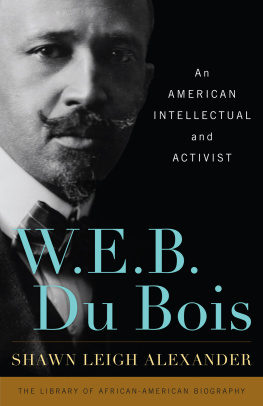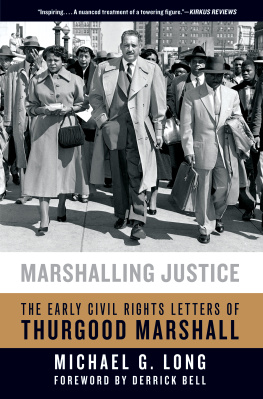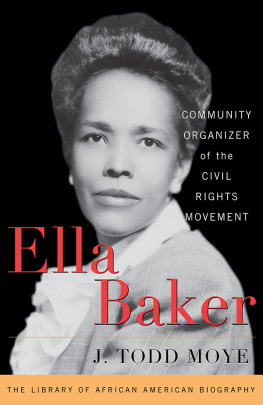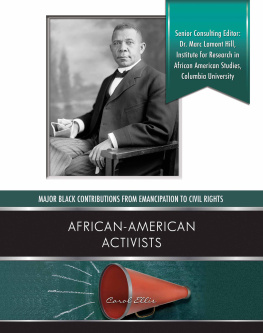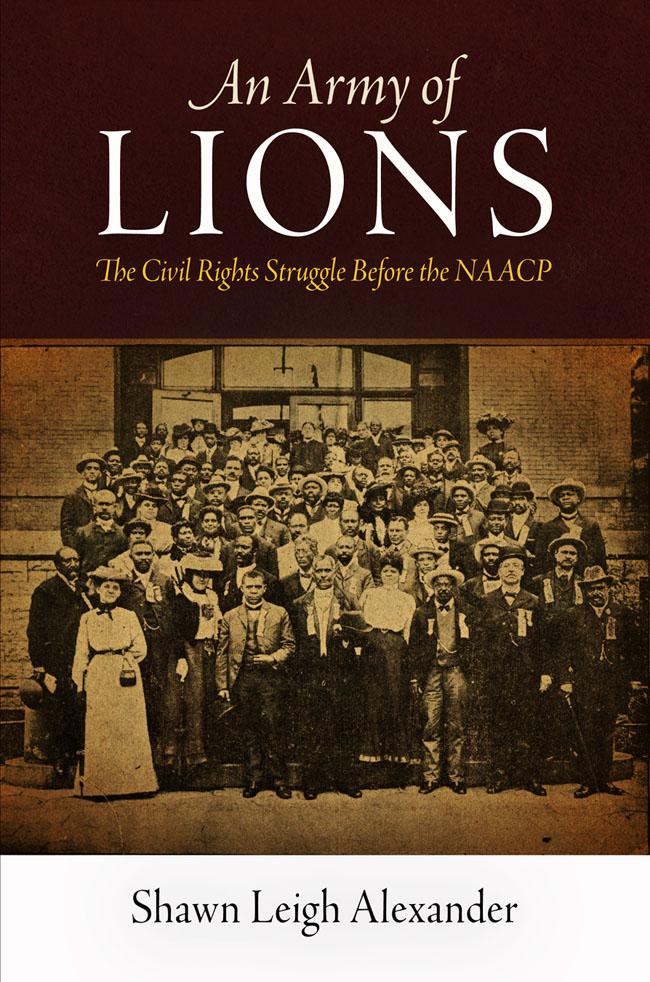An Army of Lions
POLITICS AND CULTURE IN MODERN AMERICA
SERIES EDITORS
Margot Canaday, Glenda Gilmore,
Michael Kazin, and Thomas J. Sugrue
Volumes in the series narrate and analyze political and social change in the broadest dimensions from 1865 to the present, including ideas about the ways people have sought and wielded power in the public sphere and the language and institutions of politics at all levelslocal, national, and transnational. The series is motivated by a desire to reverse the fragmentation of modern U.S. history and to encourage synthetic perspectives on social movements and the state, on gender, race, and labor, and on intellectual history and popular culture.
An Army of Lions
The Civil Rights Struggle Before the NAACP
Shawn Leigh Alexander

UNIVERSITY OF PENNSYLVANIA PRESS
PHILADELPHIA
Copyright 2012 University of Pennsylvania Press
All rights reserved. Except for brief quotations used for purposes of review or scholarly citation, none of this book may be reproduced in any form by any means without written permission from the publisher.
Published by
University of Pennsylvania Press
Philadelphia, Pennsylvania 191044112
www.upenn.edu/pennpress
Printed in the United States of America on acid-free paper
10 9 8 7 6 5 4 3 2 1
Library of Congress Cataloging-in-Publication Data
Alexander, Shawn Leigh.
An army of lions : the civil rights struggle before the NAACP / Shawn Leigh Alexander.
p. cm. (Politics and culture in modern America) Includes bibliographical references and index.
ISBN 978-0-8122-4375-8 (hardcover : alk. paper)
I. African AmericansCivil rightsHistory19th century. 2. African AmericansCivil rightsHistory20th century. 3. Civil rights movementsCivil rightsHistory19th century. 4. Civil rights movementsCivil rightsHistory20th century. 5. African AmericansPolitics and government19th century. 6. African AmericansPolitics and government20th century. 7. African AmericansSocial conditionsTo 1964. 8. United StatesRace relationsHistory19th century. 9. United StatesRace relationsHistory20th century. I. Title. II. Series: Politics and culture in modern America.
E185.61.A437 2011
323.1196073dc23
2011023615
For Emily
As the agitation which culminated in the abolition of African slavery in this country covered a period of fifty years, so may we expect that before the rights conferred upon us by the war amendments are fully conceded, a full century will have passed away. We have undertaken no childs play. We have undertaken a serious work which will tax and exhaust the best intelligence and energy of the race for the next century.
T. Thomas Fortune
NYA, January 25, 1890
Contents
Preface
Agitate and act until something is done. While we are resting
on our oars, seemingly content with expressing our indignation
by resolutions at the outrages which daily occur, others are presuming
upon this inaction of our rightsnay upon life itself.
Iola (Ida B. Wells)
The Negro must organize, wrote Brooklyn-based African American lawyer T. McCants Stewart in 1889. He must be peaceable, but if... forced to fight, argued Stewart, invoking two famous Civil War battles involving African American Union troops, he must do so with the same pluck, energy and spirit which he displayed at Fort Fisher and Battery Wagner; and if he must die, let him make his death so costly to the whites in blood and fire as to force the conservative and moral white elements of the South to stand up for peace, and to insist upon equal and exact justice to all men alike. These fighting words were written in response to Stewarts confidant, journalist and political activist T. Thomas Fortune and Fortunes call to assemble a national convention of the local branches of the Afro-American League and form the countrys first national civil rights organization.
Fortunes desire for a national civil rights organization resonated with African Americans in the late 1880s. After the 1876 election of Rutherford B. Hayesone of the most contentious and hotly disputed elections in American historysouthern states, backed by violence, intimidation, and the invocation of white supremacist racial politics, rewrote their constitutions and passed legislation stripping African American citizens of their civil, social, and political rights. At the same time, black citizens rights in the North were also being increasingly curbed. African American leaders and activists responded in many ways ranging widely from self-help and racial solidarity to economic nationalism, emigration, and political agitation.
An Army of Lions is also about the people who fought and continued to fight when their position in American society became increasingly tenuous and victory was not foreseeable. This pioneering group was comprised of individuals who understood, as scholar activist William S. Scarborough argued in 1889, that Southern outrages and Northern proscription make inactivity on our part almost a crime. Rather than succumbing to these rising injustices, black activists during the late nineteenth century organized as a means of self-protection. All the individuals and organizations in this study upheld the validity of the Reconstruction-era civil rights amendments as these amendments were being stripped from federal and state constitutions, and as racial discrimination, disfranchisement, and mob violence curtailed and limited modes of political redress and protest. These individuals used propaganda, moral suasion, boycotts, lobbying, and electoral office as well as the call for self-defense to end disfranchisement and contest racial violence. But while they wielded a wide range of weapons, the courts were key in their pursuit of justice. In the process, the Afro-American League, as well as the organizations that formed in its wake, created the legal strategy that became the foundation of the NAACPs struggle for civil rights in the twentieth century.
An Army of Lions also reveals the shifting views, changing allegiances, and competition for support and resources among leading African American intellectuals and activists as Jim Crow dawned and developed. In this era, I argue the vitality of the protest tradition in African American social and political thought did not disappear or diminish. Rather, the philosophies of legal redress, racial solidarity, self-help, economic development, educational reform, and emigration were all vibrant and intermingled. This is particularly demonstrated in the study of the Afro-American League and the Afro-American Council, both of which were active for nearly two decades during the nadir, and which at various times counted nearly every leading African American within their ranks as they debated the racial climate of the nation and tried to formulate a program for racial advancement within their comprehensive platform.
When asked about civil rights organizations, most Americans immediately think of the NAACP. Scholars might begin with the Niagara Movement, led by W. E. B. Du Bois, William Monroe Trotter, and Frederick McGhee, to identify important precursors, but few mention prior organizations, and if they do, they largely tend to dismiss these groups as relatively insignificant paper organizations that rarely put their politics into action. One reason for this is that Du Bois has mistakenly become central to our understanding of this period of African American history. His leadership role in the Niagara Movement, for example, has obscured how others have perceived and studied the era. As a result, scholars have often agreed with Du Boiss and historian Herbert Apthekers assertion that only the Niagara Movement influenced the founding of the NAACP.


